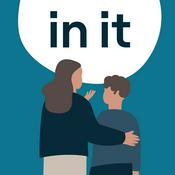When a teacher says your child is “too smart” for special education services, it doesn’t feel like a compliment — it’s more like a roadblock!
Parent advocate Danielle Ward joins us to unpack what this response often means and how it might signal twice exceptionality, where giftedness masks real struggles.
She shares practical strategies for moving forward when the system says “no,” even when your child clearly needs support.
We also break down what legally qualifies a student for an IEP, when a 504 plan might be a helpful tool, and how to push through to get your child the support they need.
For more on this topic:
Listen: IEPs: The difference between IEPs and 504 plans
Read: All about twice-exceptional students
Book: Differently Wired Kids, by Debbie Reber (TILT Parenting)
Resource: School Avoidance Alliance
Timestamps:
(05:00) What is 2E (twice exceptionality)?
(09:20) Who is legally eligible for an IEP?
(13:04) How 504 plans can support your child
(18:47) Understanding academic vs. educational impact
For a transcript and more resources, visit the In It page on Understood.org. We love hearing from our listeners! Email us at
[email protected].
Listen to Everyone Gets a Juice Box, a new podcast from Understood.org where host Jessica Shaw has honest talks with parents raising kids who learn and think differently.
Understood.org is a nonprofit organization dedicated to empowering people with learning and thinking differences, like ADHD and dyslexia. If you want to help us continue this work, donate at understood.org/give
Hosted by Simplecast, an AdsWizz company. See pcm.adswizz.com for information about our collection and use of personal data for advertising.



